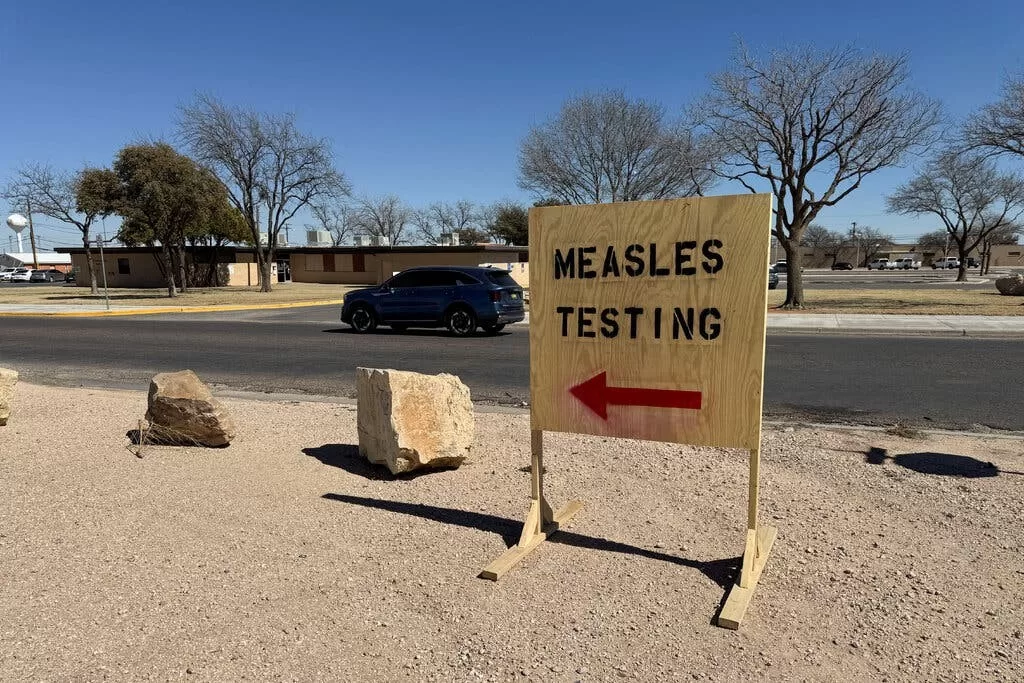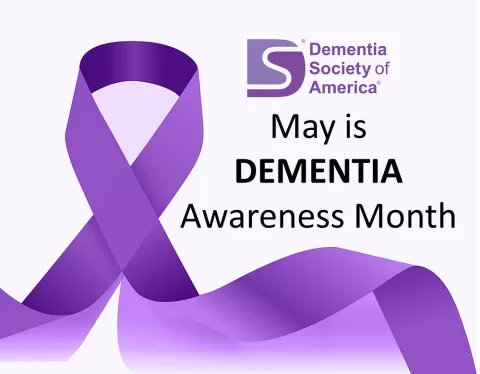The recent measles outbreak in Texas has escalated into a significant health crisis, sparking alarm among parents and health officials alike. At the forefront of this epidemic is Covenant Children’s Hospital, where medical staff are addressing alarming cases of vitamin A toxicity in children afflicted with severe measles infections. The intersection of misinformation regarding vitamin A’s role in treating measles complicates the situation, as some sources advocate for its use despite warnings from health experts. With over 320 reported cases across the state and numerous hospitalizations, the urgency of accurate information is more critical than ever. As Texas grapples with this outbreak, understanding the risks associated with vitamin A and the implications of cod liver oil as a treatment alternative have become essential to navigating this public health emergency.
In light of the alarming rise in measles cases, Texas is facing a daunting health challenge. The spread of misleading information regarding remedies, particularly around vitamin A supplements and cod liver oil, has exacerbated the situation, leaving many families seeking answers. Covenant Children’s Hospital has become a focal point for pediatric care amidst this outbreak, treating young patients with both measles and concerning levels of vitamin A toxicity. As the state witnesses escalating health concerns, the dialogue around effective treatments and preventive measures continues to evolve, highlighting the need for reliable health communication during this critical time. Understanding the implications of vitamin A misinformation is vital to overcoming the current measles crisis in Texas.
Understanding the Measles Outbreak in Texas
The recent measles outbreak in Texas has raised public health concerns, as over 320 individuals have contracted the virus, prompting health officials to call it a Texas health crisis. This dramatic surge in measles cases coincides with the spread of medical misinformation that has led many to believe unverified treatments might aid in recovery. As schools and parents rush to protect their children, addressing the root causes of these outbreaks is crucial to prevent further escalations and ensure a well-informed public.
Covenant Children’s Hospital in Lubbock has reported an alarming trend where many pediatric patients with measles are simultaneously experiencing elevated levels of vitamin A toxicity. This suggests that misguided beliefs regarding vitamin supplementation as a countermeasure to measles complications have contributed to unintended health issues. Understanding the nature of this outbreak, alongside the complications arising from misguided information, is vital for effective communication and health education in the community.
The Impact of Vitamin A Toxicity on Measles Patients
Vitamin A, often touted for its immune-boosting properties, has become a focal point amidst the measles outbreak in Texas. While some may believe that increasing vitamin A intake can better equip the body to combat infections like measles, health experts warn against excessive consumption. At Covenant Children’s Hospital, health practitioners are seeing the repercussions of this belief, as several children are being treated for vitamin A toxicity, which can lead to abnormal liver function—an alarming side effect that complicates recovery from measles.
The connection between vitamin A toxicity and measles complications highlights the necessity for accurate medical guidance. Despite recommendations from figures like Robert F. Kennedy Jr. to utilize vitamin A supplements for measles treatment, health professionals maintain that there is no substantiated evidence to support the efficacy of such approaches in the general population, especially in areas like West Texas not affected by vitamin A deficiency. The importance of relying on evidence-based medicine cannot be overstated to ensure patient safety and optimal treatment outcomes.
Addressing Measles Misinformation and Public Health
The rampant spread of measles misinformation has compounded the crisis in Texas, where fear and confusion have led to misguided medical practices. Public figures and media outlets promoting unproven remedies, such as high doses of vitamin A or cod liver oil, contribute to the worsening of health outcomes among vulnerable populations. It is essential to address these myths with clear, factual information to ensure that families understand the risks and proper preventive measures against measles.
In combating misinformation, public health officials must focus on enhancing community education regarding the importance of vaccinations and debunking myths surrounding treatments. The Texas health department has a pivotal role in equipping citizens with evidence-based resources that emphasize the role of vaccines in preventing outbreaks like the one currently afflicting West Texas. As misinformation continues to spread, coordinated efforts between health institutions and community leaders can foster a more informed public capable of making health-conscious decisions.
The Role of Cod Liver Oil in Measles Treatment
Cod liver oil’s resurgence in popularity during the Texas measles outbreak underscores how misinformation can shape healthcare behaviors. Advocates of this supplement often promote it for its vitamin A and D content, suggesting it as a natural alternative to standard treatments. As local pharmacies report increased sales of cod liver oil, it has become clear that many individuals are seeking out this product in hopes that it might mitigate the effects of measles—a misguided approach that could lead to more serious health issues, such as vitamin A toxicity.
Despite the vigorous promotion of cod liver oil as a remedy among certain groups, the medical community continues to stress that there is no empirical evidence supporting its effectiveness in treating measles. Children with this viral infection require proper medical care, including supportive treatments and vaccines, rather than home remedies that could endanger their health. It’s imperative for healthcare providers to communicate the facts regarding measles treatment to prevent such misconceptions from placing children at further risk.
The Importance of Evidence-Based Medicine in Measles Management
As the measles outbreak in Texas reveals, the intersection of misinformation and healthcare choices can have devastating consequences. The promotion of unverified treatments, such as high doses of vitamin A or cod liver oil, undermines the critical role that vaccines play in preventing measles. Health professionals advocate for evidence-based medicine to guide treatment protocols and public health recommendations, emphasizing that the best way to safeguard against measles is through vaccination and appropriate medical care.
In light of the current outbreak, medical institutions must stress the importance of adhering to guidelines established by reputable organizations, like the CDC and WHO. These agencies provide scientifically grounded recommendations that are crucial in ensuring effective responses to infectious diseases and protecting public health. Educating the public on the value of vaccines and debunking myths surrounding alternative treatments will reduce the occurrence of misinformation, ultimately helping to control the measles crisis in Texas.
Community Response to the Measles Outbreak
The community response to the measles outbreak in Texas has highlighted the need for collective action against misinformation and health risks. As reports of measles cases emerge, local health departments and organizations are stepping up efforts to promote vaccination campaigns and educate families about the importance of immunization. Community leaders play a crucial role in facilitating access to credible information, connecting residents with resources that dispel myths regarding illnesses and unverified treatments.
Moreover, as Texas experiences a significant health crisis, collaboration between parents, schools, and healthcare professionals is vital. Schools can serve as platforms for disseminating accurate information about measles and the importance of vaccinations, helping to ensure that students remain healthy. Engaging community members in discussions about public health will empower individuals to make informed decisions, thereby building resilience against misinformation related to the ongoing outbreak.
Lessons Learned from the Texas Measles Outbreak
The ongoing measles outbreak in Texas serves as a significant learning opportunity for public health officials, communities, and individuals. One of the key lessons is the urgent need to combat misinformation that can exacerbate health crises. The prevalence of misconceptions about treatments for measles and the emphasis on vitamin A supplementation showcase how misinformation can lead to hazardous health practices. It is essential to implement strategies that discourage the spread of false information and provide the public with accurate, trustworthy guidance.
Additionally, this outbreak underscores the importance of enhancing public trust in vaccines and their effectiveness in preventing disease outbreaks. By relaying clear communication about the safety and efficacy of vaccinations, public health officials can better mitigate the impact of future outbreaks. Providing comprehensive education about the benefits of vaccination and addressing concerns transparently will foster a healthier, more informed community better equipped to handle public health challenges.
Strategies for Preventing Future Measles Outbreaks
Preventing future measles outbreaks requires a multifaceted approach that combines public education, healthcare access, and vaccination initiatives. Communities must prioritize consistent outreach efforts that aim to inform families about the importance of maintaining up-to-date vaccinations, especially in light of the recent Texas health crisis. Public health organizations play a pivotal role in promoting vaccine awareness, highlighting the risks associated with measles, and combating misinformation surrounding its treatment.
In addition to public education, facilitating easier access to vaccinations is essential in controlling measles outbreaks. Health clinics and schools can partner to offer vaccination drives that reach under-served communities, ensuring that all children have the opportunity to receive the necessary immunizations. By strengthening vaccination coverage, we can build herd immunity that not only protects individuals from measles but also stabilizes public health in the long term.
The Role of Healthcare Professionals in Measles Education
Healthcare professionals are at the forefront of addressing the measles outbreak and the surrounding misinformation in Texas. By providing accurate information regarding measles, its complications, and the importance of vaccination, they can help combat fear and confusion among patients and their families. Medical practitioners should actively engage with their communities, offering guidance on safe treatment options and clarifying misconceptions about vitamin A and other unverified remedies.
In their role as trusted health advisors, healthcare professionals can also encourage conversations around vaccination hesitancy, addressing concerns and providing ample resources that reassure parents. By fostering open dialogues and providing fact-based education about measles and its prevention, healthcare practitioners can significantly influence community health outcomes and reduce future outbreak risks.
Frequently Asked Questions
What is the current status of the measles outbreak in Texas?
The measles outbreak in Texas has affected over 320 individuals, leading to 40 hospitalizations and one reported death. Health officials are monitoring the situation closely, particularly in West Texas, where complications from the outbreak have arisen.
How is vitamin A toxicity related to the measles outbreak in Texas?
In Texas, particularly at Covenant Children’s Hospital in Lubbock, children suffering from measles are being treated for vitamin A toxicity. This is linked to misinformation suggesting that vitamin A can help treat measles, resulting in elevated levels causing adverse liver function.
What role does misinformation play in the Texas measles outbreak?
Misinformation, largely propagated by figures such as Robert F. Kennedy Jr., has contributed to the confusion surrounding the treatment of measles, including the incorrect promotion of vitamin A and cod liver oil, which has led to health concerns like vitamin A toxicity among affected children.
Can vitamin A prevent measles during the Texas outbreak?
There is no evidence that vitamin A can prevent measles. While the World Health Organization provides vitamin A to combat mortality in malnourished populations during outbreaks in some regions, this strategy is not applicable to the current measles outbreak in Texas.
Why is cod liver oil in high demand during the Texas measles outbreak?
During the Texas measles outbreak, cod liver oil has gained popularity based on claims that it can alleviate measles symptoms due to its vitamin A and D content. However, medical experts warn against excessive intake, as it can lead to toxicity, complicating the outbreak situation.
What precautions are being taken by Covenant Children’s Hospital in response to the measles outbreak in Texas?
Covenant Children’s Hospital is treating pediatric patients for complications related to measles while advising caution regarding vitamin A intake. They have emphasized the risks associated with high levels of vitamin A, as many patients have exhibited signs of toxicity.
What is the response from health authorities regarding the measles and vitamin A concerns in Texas?
Health authorities in Texas are urging the public to avoid misinformation about measles treatments. They stress the importance of following verified medical guidance, particularly regarding vitamin A supplementation, to prevent harmful effects during the measles outbreak.
What can we learn from the Texas measles outbreak regarding public health and misinformation?
The Texas measles outbreak highlights the significant impact of medical misinformation on public health. It underscores the need for accurate information from credible sources and the importance of vaccination as a key measure to prevent outbreaks.
| Key Points |
|---|
| Medical disinformation is linked to the measles outbreak in West Texas. |
| Covenant Children’s Hospital is treating children with severe measles and vitamin A toxicity. |
| Under 10 pediatric patients with measles have elevated vitamin A levels causing liver issues. |
| Health Secretary Robert F. Kennedy Jr. recommended vitamin A usage amidst the outbreak. |
| Kennedy promoted cod liver oil for treating measles patients during interviews. |
| The hospital warns against excessive vitamin A intake as it may lead to toxicity. |
| No evidence supports that vitamin A prevents measles. |
| Over 320 individuals in Texas have contracted measles, with 40 hospitalized. |
| One child has tragically died due to the ongoing measles outbreak. |
Summary
The recent measles outbreak in Texas has raised significant health concerns, largely exacerbated by rampant medical disinformation. Authorities are taking strict measures as they confront the rising cases, while public health officials emphasize the importance of validated treatment protocols against the viral infection. Experts continue to advise caution regarding the unnecessary use of vitamin A in patients, highlighting that malnutrition is not a prevailing issue in affected areas. As the community rallies to manage this outbreak, awareness and accurate information remain key to preventing further complications.
The content provided on this blog (e.g., symptom descriptions, health tips, or general advice) is for informational purposes only and is not a substitute for professional medical advice, diagnosis, or treatment. Always seek the guidance of your physician or other qualified healthcare provider with any questions you may have regarding a medical condition. Never disregard professional medical advice or delay seeking it because of something you have read on this website. If you believe you may have a medical emergency, call your doctor or emergency services immediately. Reliance on any information provided by this blog is solely at your own risk.








